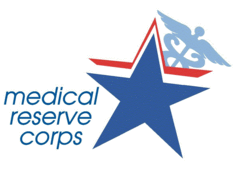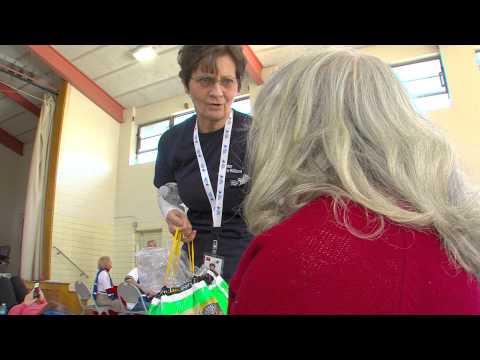San Mateo County Medical Reserve Corps
 What is the San Mateo County Medical Reserve Corps?
What is the San Mateo County Medical Reserve Corps?
The San Mateo County Medical Reserve Corps (SMC MRC) is a collaborative effort between local communities and the County which will enhance preparedness and response to major medical health emergencies and disasters. We are comprised of specially trained volunteers who work in conjunction with public health infrastructure during times of emergency or disaster. MRC volunteers dedicate their time and expertise in a variety of fields, such as public health, medicine, project management, nursing, and more, to ensure a rapid, thorough, and safe response to the healthcare needs of the public. Volunteers of all backgrounds are invited to join.
Mission
The Mission of the San Mateo County Medical Reserve Corps is to collaboratively serve in assuring the health of the public during emergencies and disasters.
The SMC MRC also supports public health through participation in community disaster preparedness drills, staffing first aid stations at community events, providing health screenings at health fairs, and distributing health and emergency preparedness information at local events. Through specialized training, SMC MRC members are equipped to be called upon in the event of a large scale disaster, public health emergency, hospital surge, or to provide medical related support to shelters.
New Member Information
- National Medical Reserve Corps Website
- Ready.gov: Plan Ahead for Disasters
- California Disaster Healthcare Volunteers Program
- Contact Us : mrc@smcgov.org
Join the SMC MRC Email List
Enter your name and email to receive notifications regarding the San Mateo County Medical Reserve Corps (SMC MRC), and events.
